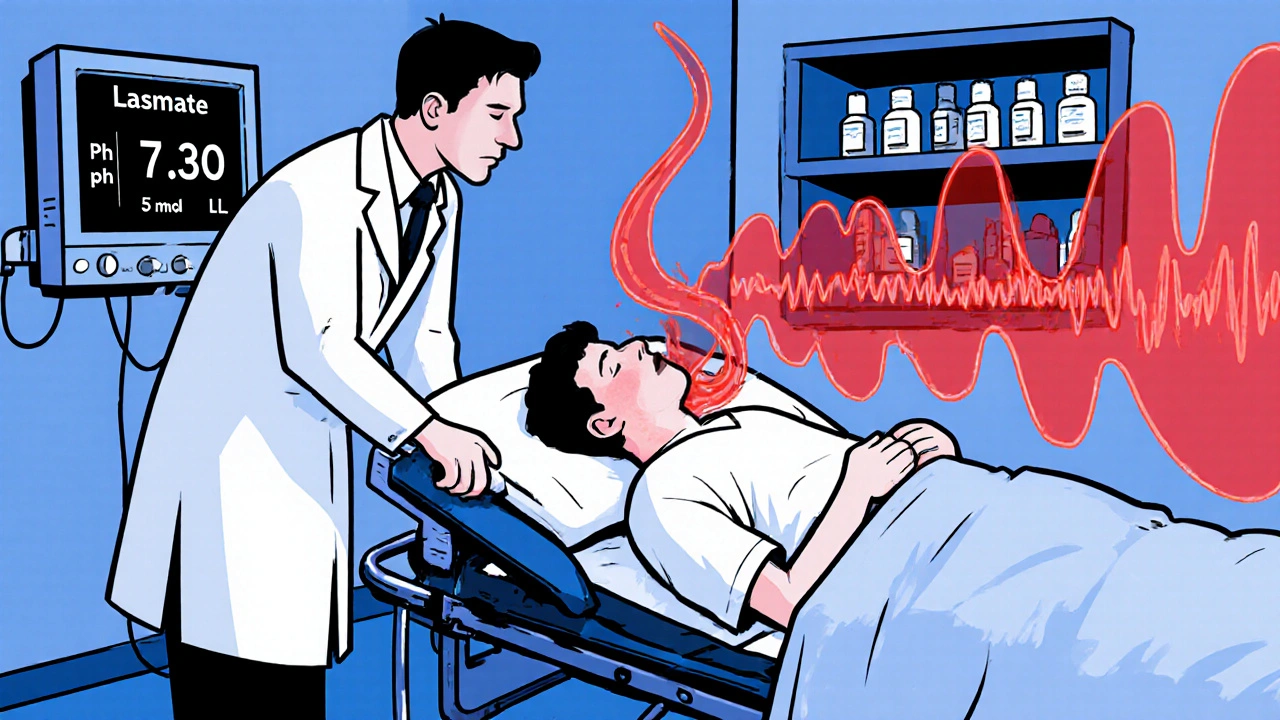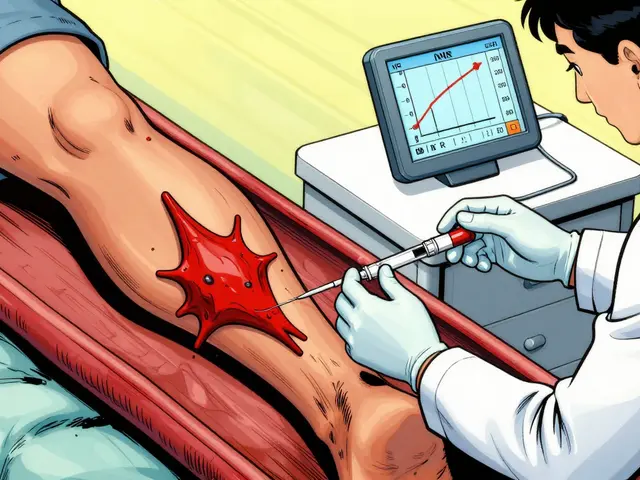Medication-Induced Lactic Acidosis: Causes, Risks, and What You Need to Know
When your body makes too much lactic acid and can’t clear it fast enough, you get medication-induced lactic acidosis, a dangerous buildup of lactic acid caused by certain drugs. Also known as drug-related lactic acidosis, it’s not common—but when it happens, it can be life-threatening. This isn’t the same as lactic acid from intense exercise. This is a medical emergency triggered by how your body processes specific medicines.
The biggest culprit? metformin, a common diabetes drug that can interfere with how cells use oxygen. Also known as Glucophage, it’s usually safe—but if you have kidney problems, heart failure, or get dehydrated, your risk jumps. Other drugs linked to this include nucleoside reverse transcriptase inhibitors, used in HIV treatment, which can damage mitochondria, and even some antibiotics and chemotherapy agents that mess with cellular energy production. When mitochondria—the power plants in your cells—start failing, lactic acid piles up like traffic on a highway with no exit.
You won’t always feel it coming. Early signs are easy to miss: tiredness, nausea, muscle aches, or rapid breathing. But if you start feeling cold, dizzy, or your heart starts racing oddly, don’t wait. These are red flags. People with kidney disease, liver issues, or alcohol use disorder are at higher risk. Even healthy people can get it if they take the wrong combo of meds or get seriously sick. It’s not about taking too much—it’s about how your body handles the drug under stress.
The posts below dig into real cases and connections. You’ll find deep dives on drugs like Lexapro and Zanaflex that may affect metabolism, comparisons of medications that stress the liver or kidneys, and guides on spotting hidden side effects. Some articles look at how common prescriptions interact with your body’s natural balance—like how cholesterol meds or antibiotics can quietly change how your cells breathe. This isn’t just about one drug. It’s about understanding the hidden chains between what you take and how your body survives.





